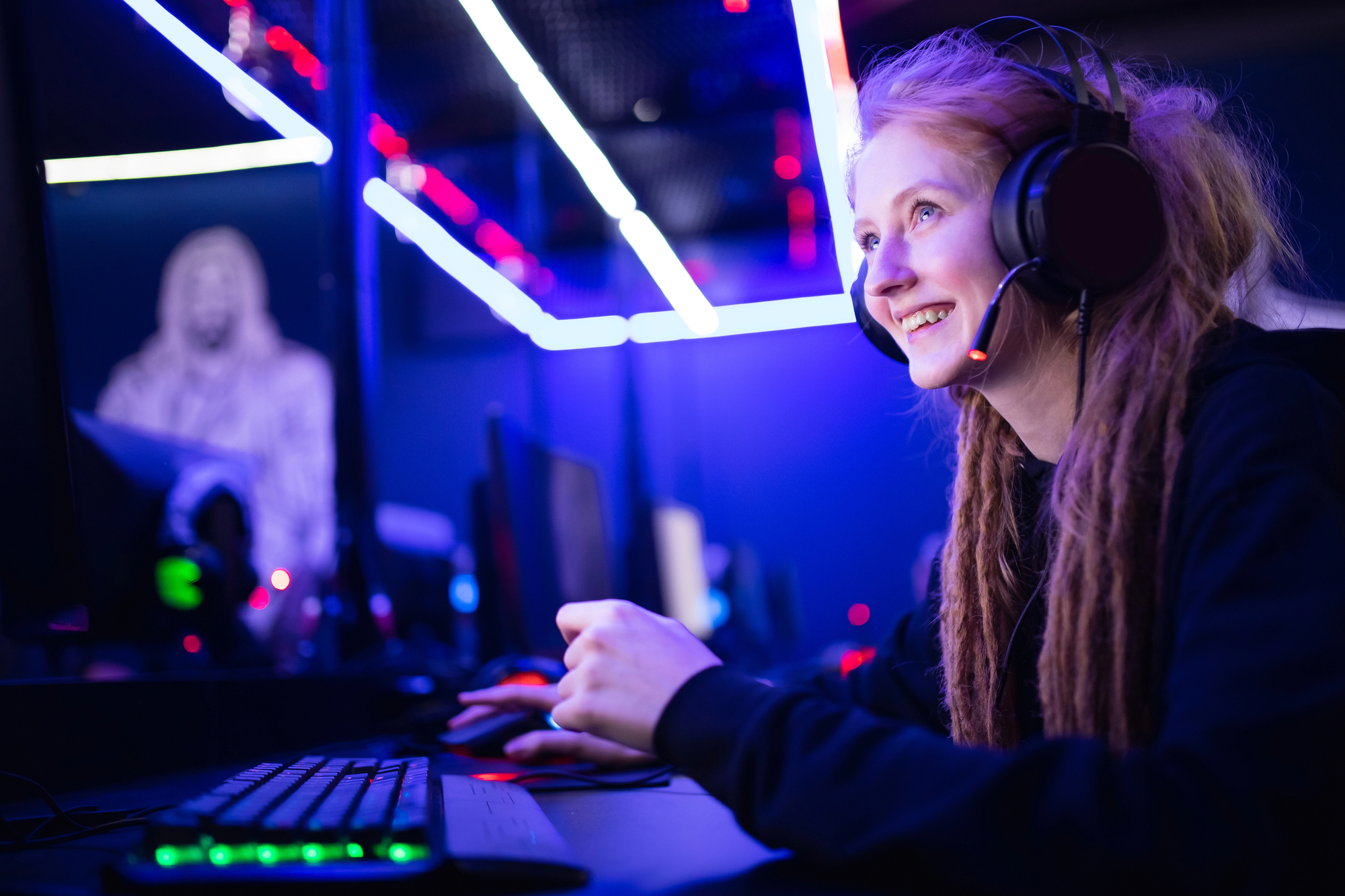Gaming has emerged as a powerful tool for enhancing global communication skills. As online multiplayer games continue to connect players from diverse backgrounds, they create unique opportunities for cross-cultural interactions and language practice. Video games provide immersive environments that encourage players to communicate effectively, coordinate actions, and share information in real-time, fostering the development of vital communication abilities.
The impact of gaming on social interactions extends beyond virtual worlds. While excessive gaming can strain offline relationships, moderate and purposeful engagement in multiplayer games can build new connections and strengthen existing ones. Players often form friendships across geographical boundaries, learning to navigate cultural differences and overcome language barriers through shared gaming experiences.
Educational initiatives are harnessing the potential of gaming to promote social consciousness and develop 21st-century skills. Programs like the Games for Change Student Challenge teach young people to design games addressing social issues, emphasizing empathy, collaboration, creativity, and communication. This approach transforms players into digital storytellers, equipping them with valuable skills for global communication in an increasingly interconnected world.
The Intersection of Gaming and Communication
Video games have become powerful tools for developing communication skills and fostering social interactions. Online gaming environments provide unique opportunities for players to practice and enhance their ability to connect with others across various platforms and cultures.
The Role of Online Gaming in Fostering Communication
Online gaming creates virtual spaces where players interact and collaborate. These digital environments encourage the exchange of ideas, strategies, and information. Gamers often form teams or guilds, requiring clear and effective communication to achieve shared goals.
Voice chat features in many games allow for real-time verbal communication, helping players develop listening and speaking skills. Text-based chat systems also improve written communication abilities, as gamers learn to convey messages quickly and clearly.
Cross-cultural interactions are common in online gaming communities. Players from different countries and backgrounds come together, promoting language learning and cultural exchange. This exposure helps gamers develop global communication competencies.
Improving Social Skills Through Multiplayer Games
Multiplayer games create scenarios that mimic real-world social situations. Players learn to cooperate, negotiate, and resolve conflicts within the game context. These experiences can translate to improved social skills in offline settings.
Team-based games teach players how to work together effectively. Roles within a team often require different communication styles, helping gamers adapt their approach based on the situation and their teammates’ needs.
Competitive multiplayer games can also foster sportsmanship and respectful communication. Players learn to handle both victory and defeat gracefully, developing emotional intelligence and empathy.
Leveraging Technology: Video Games as Communication Tools
Video games incorporate various communication technologies that enhance player interaction. In-game messaging systems, emotes, and pings allow for quick, non-verbal communication during gameplay.
Some games feature built-in translation tools, enabling players to communicate across language barriers. This technology promotes global connections and understanding between diverse player bases.
Gaming platforms often include social features like friend lists, game invites, and party systems. These tools facilitate ongoing communication and relationship-building among players, extending social interactions beyond individual gaming sessions.
Advancing Intercultural and Linguistic Competence
Gaming platforms offer opportunities for players to interact with diverse cultures and languages. These virtual spaces foster cross-cultural exchanges and language learning in engaging environments.
Cultural Understanding and Diversity in Gaming Communities
Online gaming communities bring together players from various backgrounds. Popular titles like League of Legends feature global player bases, exposing gamers to different perspectives and customs. Role-playing games often incorporate elements from multiple cultures, allowing players to explore unfamiliar traditions and beliefs.
Virtual worlds provide safe spaces to practice intercultural communication. Players can interact with others from different countries, learning about cultural norms and etiquette firsthand. This exposure helps develop empathy and broaden worldviews.
Gaming communities also celebrate diversity through events, character customization, and storylines that highlight different cultures. These elements encourage players to appreciate and respect cultural differences.
Language Learning Through Gaming: EFL Learners’ Perspective
Video games offer immersive environments for language acquisition. English as a Foreign Language (EFL) learners can improve their skills through in-game text, voice chat, and storylines.
Many games feature extensive dialogue and text, exposing players to authentic language use. This helps learners develop reading comprehension and vocabulary in context. Voice chat allows for real-time speaking practice with native speakers.
Multiplayer games require communication for success, motivating EFL learners to actively use English. Players must give instructions, ask questions, and coordinate strategies, enhancing their speaking abilities.
Gaming communities often use English as a lingua franca, creating opportunities for regular practice. Online forums and wikis related to games provide additional reading and writing practice for language learners.
The Importance of Respect and Tolerance in Virtual Spaces
Positive interactions in gaming communities rely on mutual respect and tolerance. Players encounter individuals from various backgrounds, necessitating open-mindedness and cultural sensitivity.
Game developers and community managers play a role in fostering inclusive environments. Many implement policies against hate speech and discrimination, promoting respectful communication among players.
Cross-cultural misunderstandings can occur in virtual spaces. Patience and willingness to learn from mistakes are essential for maintaining harmony in diverse gaming communities.
Players who demonstrate respect and tolerance often form lasting friendships across cultural boundaries. These connections can lead to deeper cultural exchanges and language learning opportunities outside of gaming contexts.
Game Mechanics and Their Impact on Learning
Game mechanics play a crucial role in shaping learning experiences through gaming. These elements influence problem-solving, critical thinking, and communication strategies.
Problem-Solving and Critical Thinking in Gaming
Games often present players with challenges that require strategic thinking. Players analyze situations, identify patterns, and make decisions to progress. This process enhances problem-solving skills as gamers learn to break down complex tasks into manageable steps.
Critical thinking is honed through in-game choices. Players must evaluate options, predict outcomes, and adapt strategies based on results. Many games incorporate puzzles or logic challenges that push players to think creatively and find innovative solutions.
Strategy games, in particular, foster analytical skills. Players must plan ahead, consider multiple factors, and adjust tactics in response to changing conditions. These skills transfer to real-world scenarios, improving decision-making abilities.
Collaborative Gameplay: Working Towards Common Goals
Multiplayer games encourage teamwork and cooperation. Players must communicate effectively to coordinate actions and achieve shared objectives. This fosters social skills and teaches the value of collaboration.
In team-based games, each player often has a specific role. This structure promotes understanding of individual responsibilities within a group and how diverse skills contribute to success. Players learn to trust teammates and rely on others’ expertise.
Collaborative gameplay also develops leadership skills. Players take turns guiding their team, making strategic decisions, and motivating others. These experiences build confidence in group settings and improve communication abilities.
Game Design and Its Influence on Communication Strategy
Game design elements shape how players interact and communicate. User interfaces, chat systems, and in-game prompts guide players in expressing themselves and sharing information effectively.
Role-playing games allow players to practice different communication styles. By assuming various characters, players experiment with different ways of interacting, enhancing their adaptability in real-world conversations.
Competition in games drives players to refine their communication. Clear, concise messages become important for success, especially in fast-paced environments. This trains players to convey information efficiently and accurately.
Game feedback systems teach players to give and receive constructive criticism. Leaderboards, performance stats, and peer reviews help players understand their strengths and areas for improvement, promoting self-reflection and growth in communication skills.
Challenges and Considerations in Gaming for Communication
Gaming offers opportunities for global communication, but it comes with potential pitfalls. Players must navigate issues of isolation, toxic behavior, and balancing online interactions with real-world skills.
Mitigating Negative Effects: Isolation and Toxic Behavior
Excessive gaming can lead to social isolation. Players may prioritize virtual relationships over face-to-face interactions, potentially harming their offline social connections. This isolation can impact mental health and social development.
Toxic behavior in gaming communities presents another challenge. Verbal abuse, harassment, and cyberbullying are common issues. Game developers and platform managers implement moderation tools and reporting systems to combat these problems. Community guidelines and player education programs aim to foster a more positive environment.
Players can take steps to protect themselves from negative interactions. Using mute functions, blocking problematic users, and participating in well-moderated communities help create safer spaces for communication.
Balancing Gaming and Real-life Communication Skills
While gaming can improve certain communication abilities, overreliance on digital interactions may hinder the development of crucial real-life skills. Face-to-face conversations require different competencies than online chats or voice calls.
Gamers should practice a balanced approach to communication. Engaging in both online and offline social activities helps maintain well-rounded social skills. Setting time limits for gaming sessions and scheduling regular in-person meetups with friends and family can support this balance.
Parents and educators play a role in guiding young gamers. Teaching children to recognize the differences between online and offline communication norms helps them navigate both worlds effectively.
Accessibility and Inclusivity in Online Gaming Environments
Creating inclusive gaming spaces remains a challenge. Language barriers, cultural differences, and varying levels of gaming experience can impact communication. Game designers work to implement features that bridge these gaps, such as in-game translation tools and adaptive difficulty settings.
Accessibility for players with disabilities is another important consideration. Voice recognition software, customizable controls, and closed captioning options make games more inclusive. These features allow a wider range of players to participate in gaming communities and benefit from the social aspects of online play.
Promoting diversity in gaming spaces encourages richer communication experiences. Cross-cultural exchanges in games can broaden players’ perspectives and improve global understanding.











